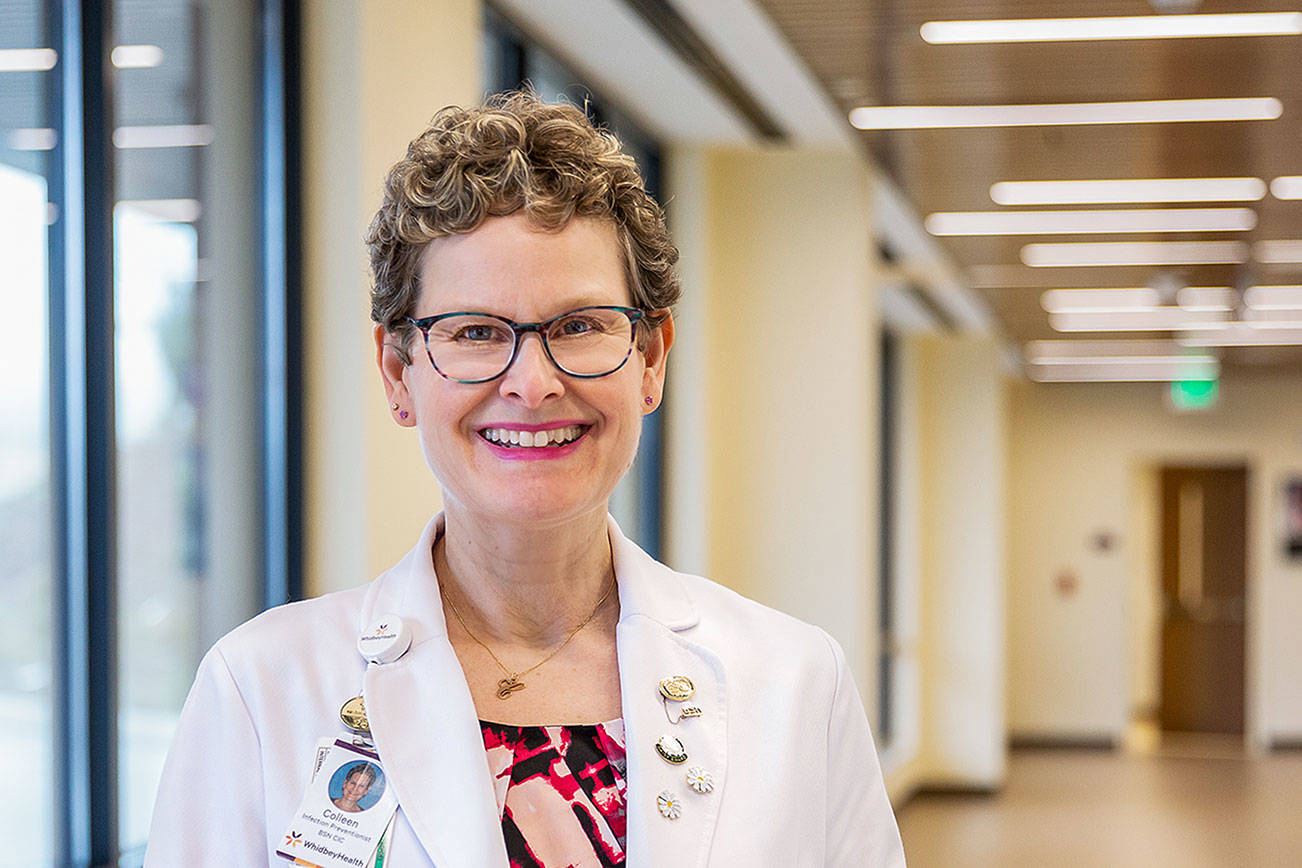WhidbeyHealth Infection Preventionist Colleen Klamm loves her work.
“I do have a passion for infection prevention,” she said.
Klamm said she was thrilled to report that WhidbeyHealth has had no device-related hospital-acquired infections since last year.
Until two were recorded in 2019, WhidbeyHealth had no device-related infections at the hospital since April 2015, according to to a hospital press release.
When the COVID-19 pandemic hit in March, Klamm became a veritable gumshoe detective for sniffing out possible infection starters at the hospital. She added that the education of staff and patients on prevention processes is key.
“I have monitored all employee illnesses since 2016,” she said. “But, in 2020, we quickly moved from monthly employee illness reports to daily reporting, so that I could maintain a watchful eye for the protection of our staff and patients.”
Klamm identified actions that needed to be taken by the staff in order to adhere to the best practices for infection prevention and, of course, with the coronavirus, the proper personal protective equipment became mandatory in many more situations.
“Infection prevention can be complex and simple at the same time,” Klamm said. If our staff is performing best practices and if the patients are following through, everything comes together in a perfect juxtaposition of prevention.”
Patients may be asked to take an antimicrobial bath, let the nurse change their bed with clean sheets and put on clean pajamas, which all can be crucial to their care as it decreases the burden on their skin. This may require some education among patients so that they are aware that these actions help to reduce the “bio-burden” of bacteria on them and prevent the spread of infection.
In the midst of the pandemic, as science about the novel pathogen continues to evolve, Klamm’s role has been pivotal in leading the organization to proactively put evidence-based practices into place, according to hospital officials.
Education has always played a big role in infection prevention for physicians, nurses and certified nursing assistants, or CNAs, as well as for patients. WhidbeyHealth CNAs are trained to let patients know that they will be checking on their central line and their catheter frequently.
“Things that may not seem important to patients can be very important to their care,” Klamm said.
Klamm has spearheaded efforts to implement sustainable practices that prevent hospital-acquired infections, and the proof of her work can be seen in our exceptionally low infection rates, the hospital reported. With Klamm’s guidance, WhidbeyHealth has engaged front-line staff to serve as champions for infection prevention by developing monitoring checks for patients with an in-dwelling device. These checks ensure that prevention interventions are performed every shift.
According to the Centers for Disease Control, one in 25 hospitalized patients will get an infection as a result of the care they receive. An estimated 75,000 patients will die each year of infections acquired in hospitals. The most common infections are associated with catheters, central lines and ventilators. Nurses are critical in keeping the patient safe from these device associated infections.
As of Aug. 1, WhidbeyHealth has had no device-related infections acquired in the hospital this year.
“Our nurses are diligent about using proper technique with the care of these devices from insertion to discontinuation and every aspect in between and it shows,” Klamm said.



